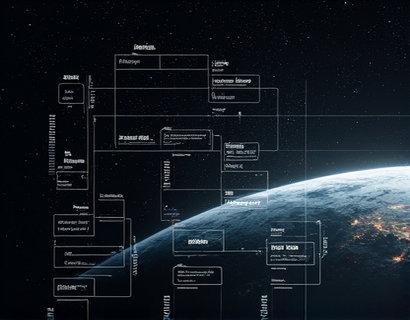Advanced AI Software for Live Virtual Entity Care: Elevating Digital Management with Cutting-Edge Solutions
The advent of advanced AI software has revolutionized the way developers and caretakers manage and care for virtual entities in the digital world. This technology, designed to optimize performance and well-being, introduces a new era of efficiency and reliability in digital entity management. By leveraging sophisticated algorithms and machine learning techniques, these AI solutions provide an unparalleled level of care and oversight, ensuring that virtual entities operate at their best.
Understanding Virtual Entity Management
Virtual entity management refers to the process of overseeing and maintaining the functionality, performance, and well-being of digital entities, which can range from simple avatars to complex AI-driven characters in virtual environments. These entities require continuous monitoring and adjustment to ensure they function smoothly and provide an engaging experience for users. Traditional methods of managing these entities often involve manual intervention, which can be time-consuming and prone to errors. The introduction of advanced AI software addresses these challenges by automating many of the tasks involved in virtual entity care.
Key Features of Advanced AI Software
Advanced AI software for virtual entity care is equipped with a multitude of features designed to enhance the management and well-being of digital entities. Some of the key features include:
- Real-time Monitoring: Continuously tracks the performance and behavior of virtual entities, identifying potential issues before they escalate.
- Predictive Analytics: Uses historical data to predict future behavior and performance, allowing for proactive adjustments.
- Automated Adjustments: Makes real-time changes to entity parameters to optimize performance and ensure smooth operation.
- Behavioral Analysis: Analyzes the actions and interactions of virtual entities to refine their behavior and improve user engagement.
- Health Monitoring: Assesses the "health" of virtual entities, detecting anomalies and suggesting corrective actions.
These features collectively contribute to a more efficient and effective management system, reducing the need for constant human oversight and allowing caretakers to focus on higher-level tasks.
Benefits of AI-Driven Virtual Entity Care
The implementation of advanced AI software in virtual entity care brings numerous benefits to developers and caretakers. Some of the most significant advantages include:
1. Increased Efficiency: AI software automates routine tasks, freeing up time for more complex and creative work. This leads to a more productive workflow and faster response times to emerging issues.
2. Enhanced Performance: By continuously monitoring and adjusting entity parameters, AI ensures that virtual entities operate at optimal levels, reducing downtime and improving user satisfaction.
3. Cost Reduction: The reduction in manual labor and the prevention of potential issues before they occur can lead to significant cost savings. This is particularly beneficial for large-scale virtual environments with numerous entities.
4. Improved Accuracy: AI algorithms can process vast amounts of data with high precision, minimizing the risk of human error and ensuring more reliable outcomes.
5. Scalability: AI solutions can easily scale to accommodate growing numbers of virtual entities, making them ideal for expanding digital environments.
Advanced Algorithms and Machine Learning
The core of advanced AI software lies in its sophisticated algorithms and machine learning capabilities. These technologies enable the software to learn from data, adapt to new inputs, and perform tasks that traditionally required human intervention. Key aspects include:
1. Machine Learning Models: These models are trained on large datasets to recognize patterns and make predictions. In the context of virtual entity care, they can predict entity behavior, identify potential issues, and suggest optimal adjustments.
2. Deep Learning: A subset of machine learning, deep learning uses neural networks with multiple layers to analyze complex data structures. This is particularly useful for behavioral analysis and real-time decision-making.
3. Reinforcement Learning: This approach allows the AI to learn through trial and error, optimizing its actions based on feedback from the environment. In virtual entity care, this can lead to more adaptive and responsive management strategies.
By integrating these advanced techniques, AI software can provide a level of intelligence and adaptability that traditional methods cannot match.
Real-World Applications
The applications of advanced AI software in virtual entity care are diverse and expanding. Some notable use cases include:
1. Virtual Reality (VR) and Augmented Reality (AR): In immersive environments, AI ensures that virtual characters and objects behave realistically and respond appropriately to user interactions.
2. Online Gaming: AI-driven care for game characters and NPCs (non-playable characters) enhances the gaming experience by creating more lifelike and engaging interactions.
3. Corporate Training: Virtual entities used in training simulations can be managed more effectively, ensuring consistent and high-quality training experiences.
4. Digital Assistants: AI software can optimize the performance of virtual assistants, making them more responsive and useful in various applications.
These applications demonstrate the versatility and potential impact of advanced AI in virtual entity management across different industries.
Challenges and Considerations
While the benefits of AI-driven virtual entity care are clear, there are also challenges and considerations to keep in mind:
1. Data Privacy: Ensuring the security and privacy of data used by AI algorithms is crucial, especially in environments handling sensitive information.
2. Algorithm Transparency: Users and developers need to understand how AI decisions are made to build trust and ensure accountability.
3. Integration with Existing Systems: Seamless integration with current infrastructure can be challenging but is essential for maximizing the benefits of AI software.
4. Continuous Learning: AI systems must be designed to continuously learn and adapt to new scenarios, requiring ongoing maintenance and updates.
Addressing these challenges proactively can help in realizing the full potential of AI in virtual entity care.
Future Trends in AI for Virtual Entity Care
The field of AI in virtual entity care is rapidly evolving, with several trends shaping its future:
1. Increased Autonomy: AI systems will become more autonomous, requiring even less human intervention and making them more self-sustaining.
2. Enhanced Emotional Intelligence: Future AI will better understand and simulate emotional responses, leading to more nuanced and engaging virtual entities.
3. Cross-Platform Compatibility: AI solutions will be designed to work seamlessly across different platforms and devices, enhancing flexibility and reach.
4. Collaborative AI: Multiple AI systems will collaborate to manage complex virtual environments, sharing data and insights to improve overall performance.
These trends indicate a future where AI plays an even more central role in the management and care of virtual entities, driving innovation and enhancing user experiences.
Conclusion
Advanced AI software represents a significant leap forward in the management and care of virtual entities. By leveraging cutting-edge algorithms and machine learning techniques, these solutions offer unparalleled efficiency, accuracy, and adaptability. As the digital landscape continues to grow, the importance of robust and intelligent virtual entity care systems will only increase. Developers and caretakers who embrace these advanced technologies will be better positioned to create engaging, reliable, and high-performing virtual environments.











































